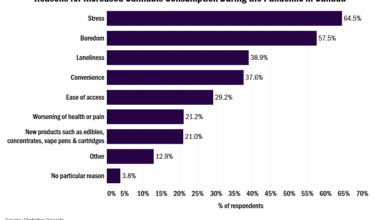The Biden administration has weighed in on a U.S. Supreme Court marijuana petition, arguing that state-legal cannabis businesses can be investigated by the Internal Revenue Service for potential violations of Section 280E of the tax code.
It is believed to be one of the first times the U.S. Department of Justice under the new administration has filed an opinion in a marijuana court case.
The recent 22-page filing was made by four DOJ attorneys, led by acting Solicitor General Elizabeth Prelogar.
James Thorburn, an attorney representing Denver-based medical marijuana dispensary Standing Akimbo in the case, told Colorado Politics that he was disappointed that the Biden administration’s approach to marijuana doesn’t reflect a change from the past.
“That is precisely the federal government’s position and has been for many years,” Thorburn said. “We were hoping that the Biden administration would soften that stance.
“It, unfortunately, has not and is doubling down.”
Section 280E of the IRS tax code prohibits marijuana businesses from taking traditional business deductions because the plant is listed as a Schedule 1 drug under the federal Controlled Substances Act.
Standing Akimbo lost a lower-court battle to prevent the IRS from obtaining business records from state regulators. In November, the company petitioned the nation’s highest court to review the case.
Alyson Jaen, a cannabis law attorney with Fortis Law Partners in Denver, told Colorado Politics that until the federal law changes, the U.S. government is likely to continue to argue that the IRS can investigate marijuana businesses.
Industry officials are optimistic that major federal marijuana reform could come in the next two years because of the Democratic trifecta – control of the U.S. House, U.S. Senate and presidency.
But experts have cautioned that efforts to eliminate Section 280E through a stand-alone bill face an extremely high hurdle because of the federal tax revenue generated by the provision.
Comprehensive marijuana reform is expected to include a federal cannabis tax that would offset the loss of government revenues from Section 280E.
Medical Disclaimer:
The information provided in these blog posts is intended for general informational and educational purposes only. It is not a substitute for professional medical advice, diagnosis, or treatment. Always seek the advice of your physician or other qualified healthcare provider with any questions you may have regarding a medical condition. The use of any information provided in these blog posts is solely at your own risk. The authors and the website do not recommend or endorse any specific products, treatments, or procedures mentioned. Reliance on any information in these blog posts is solely at your own discretion.






